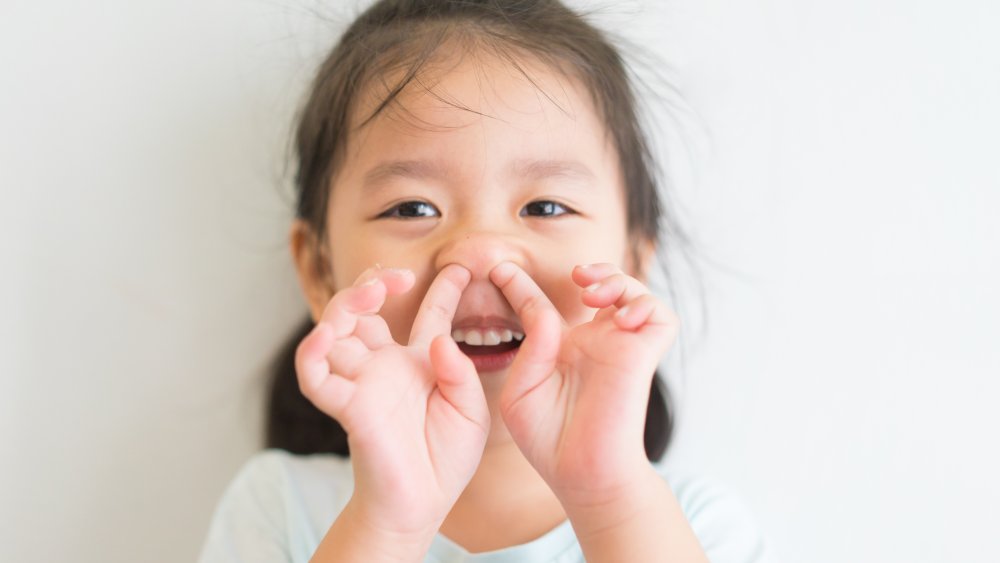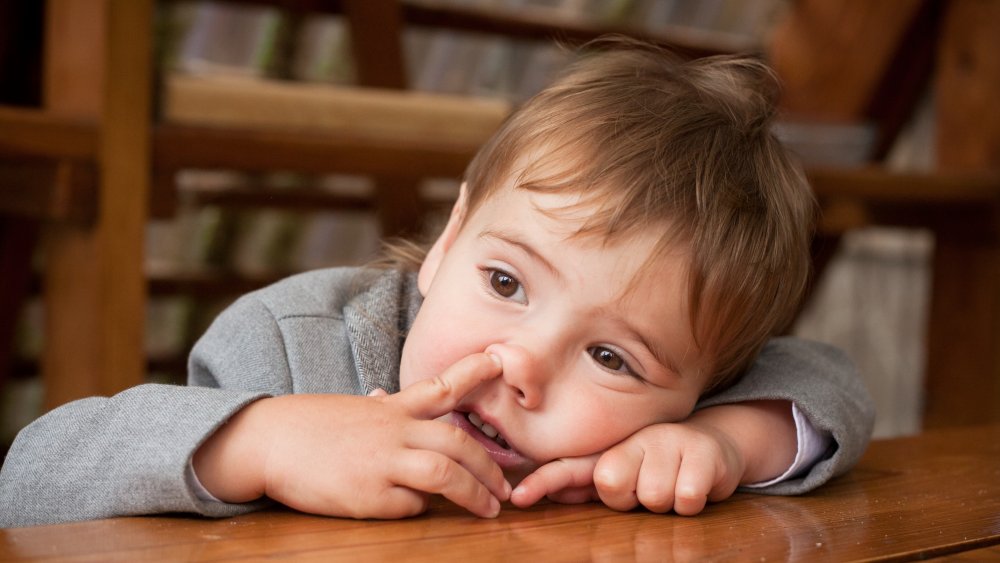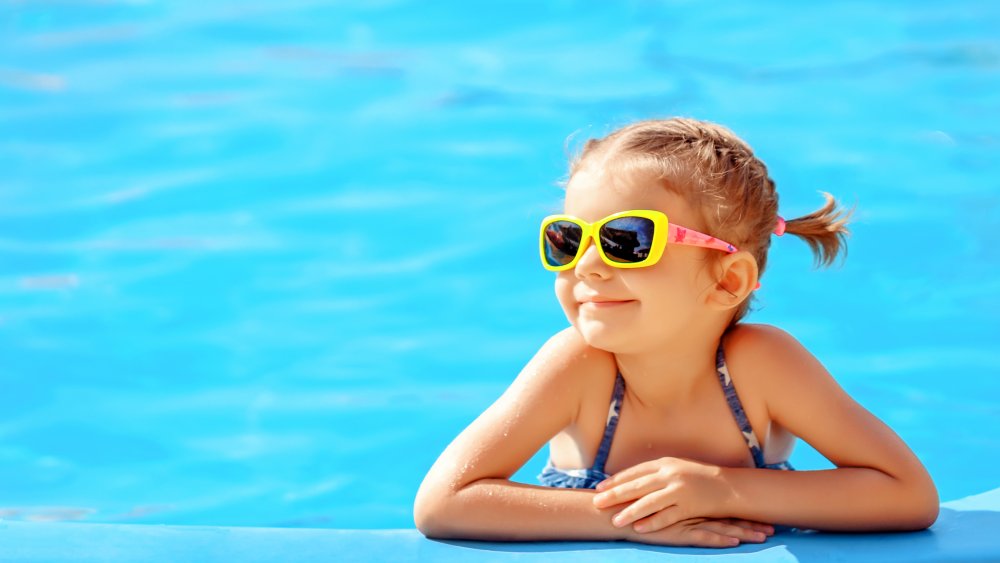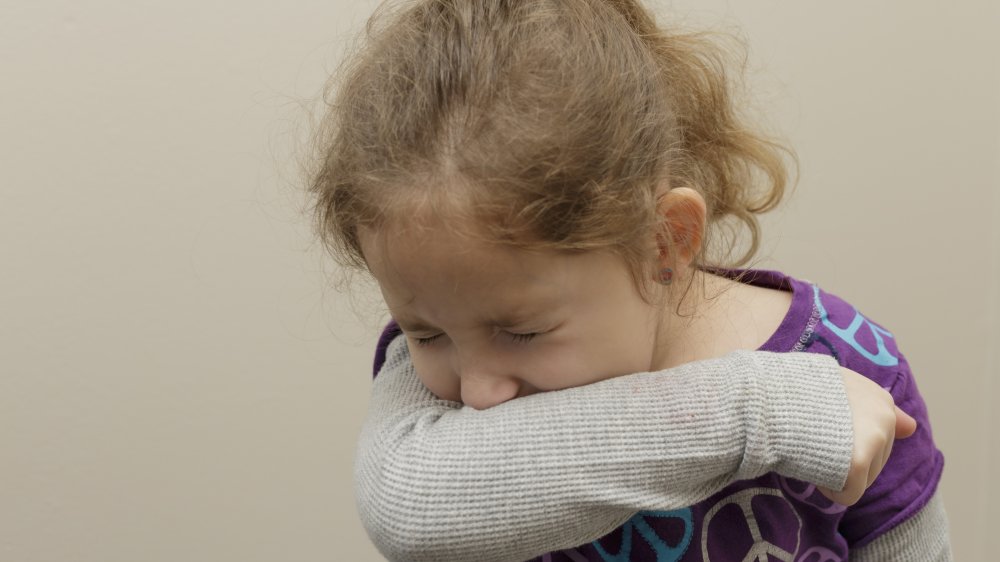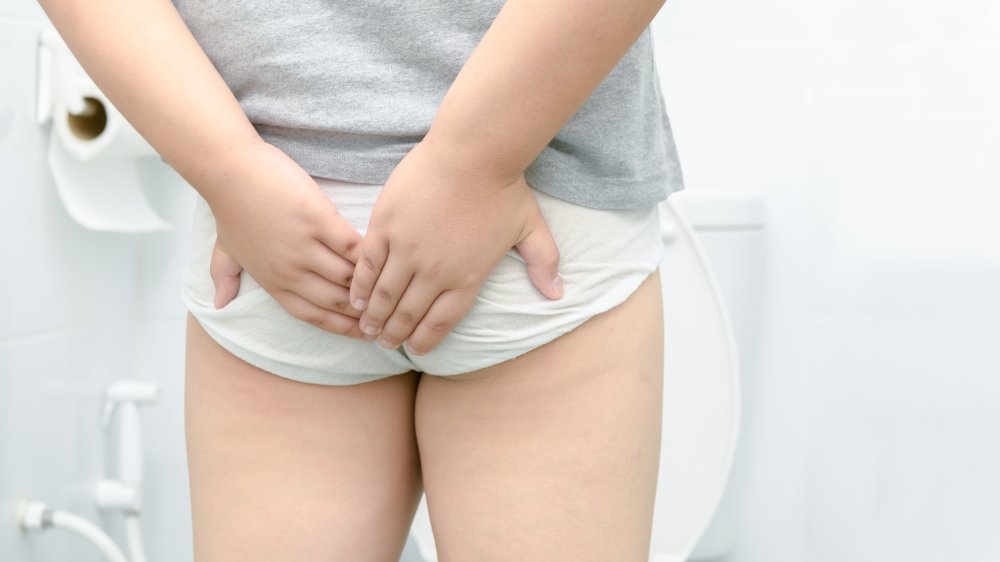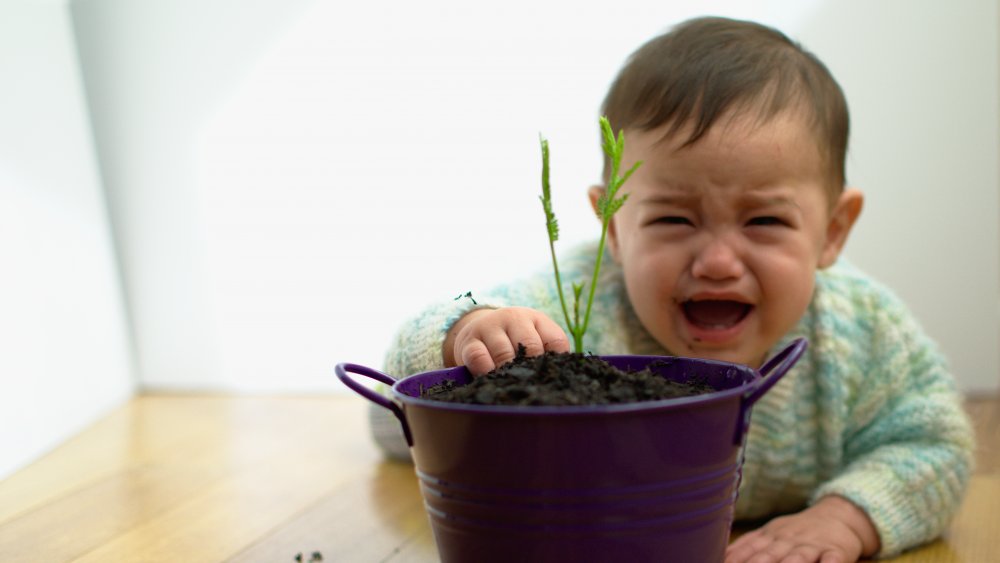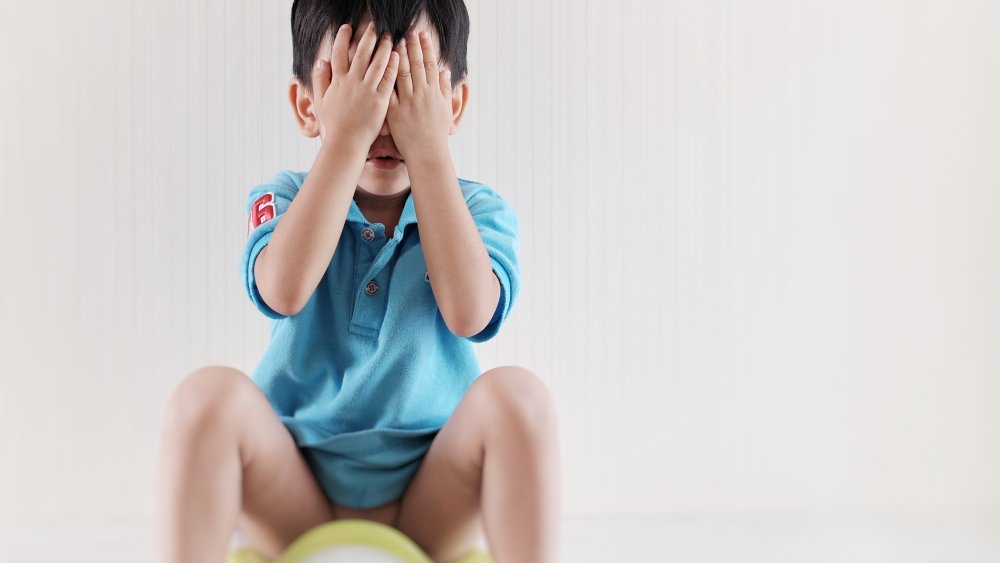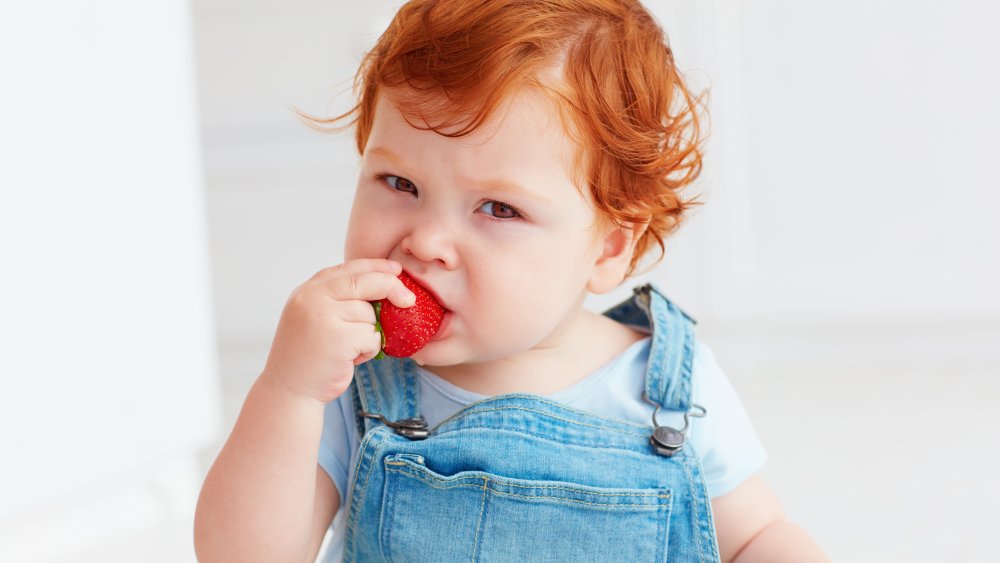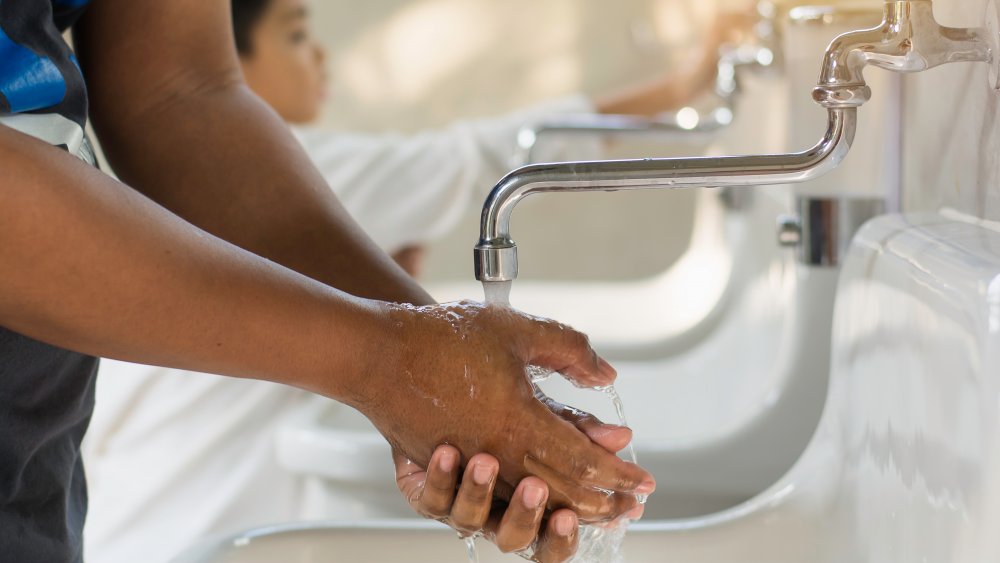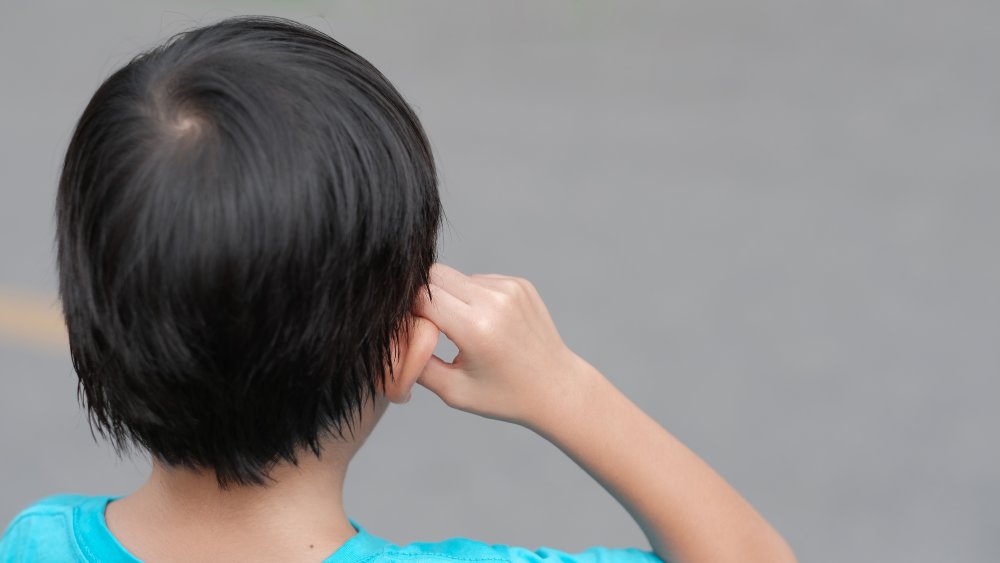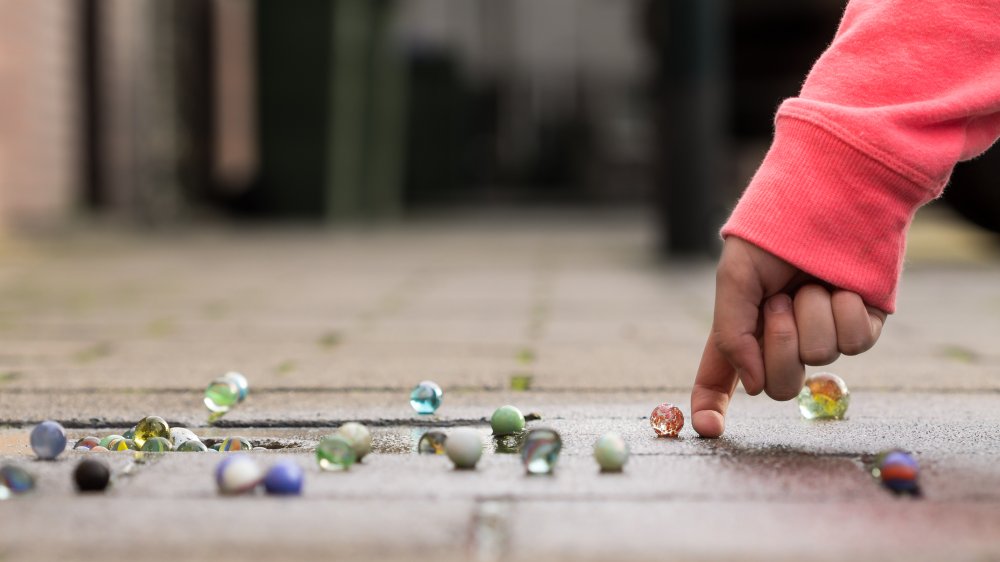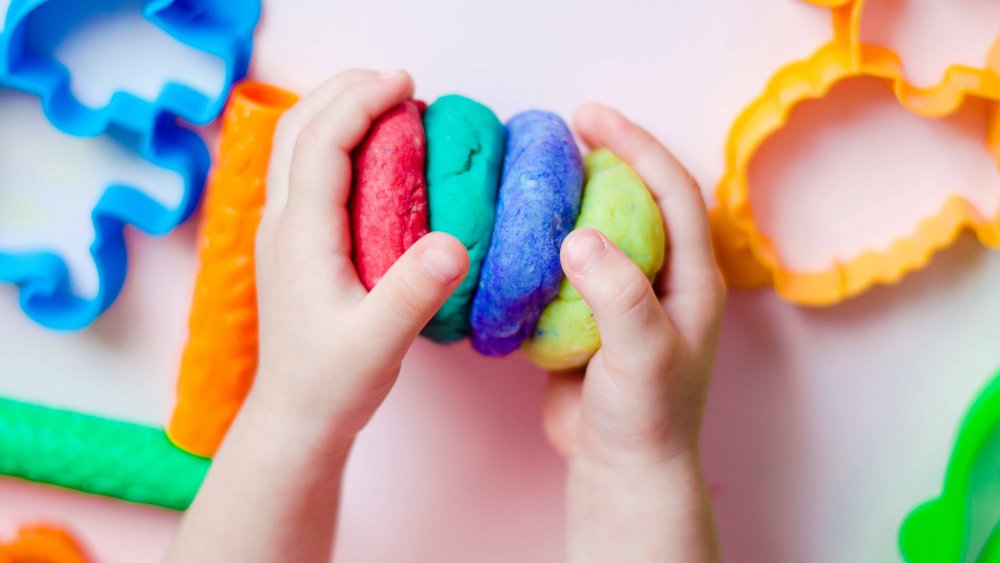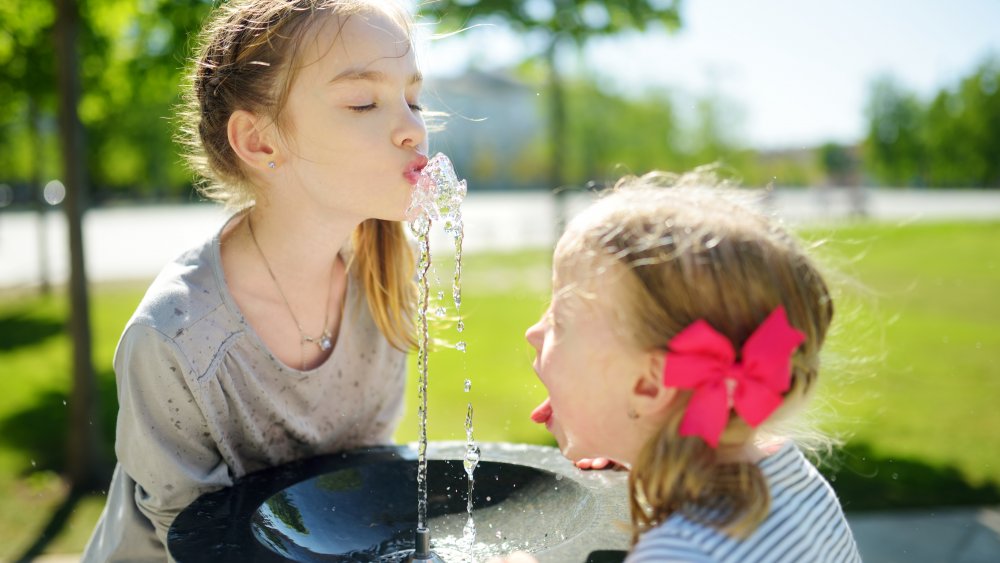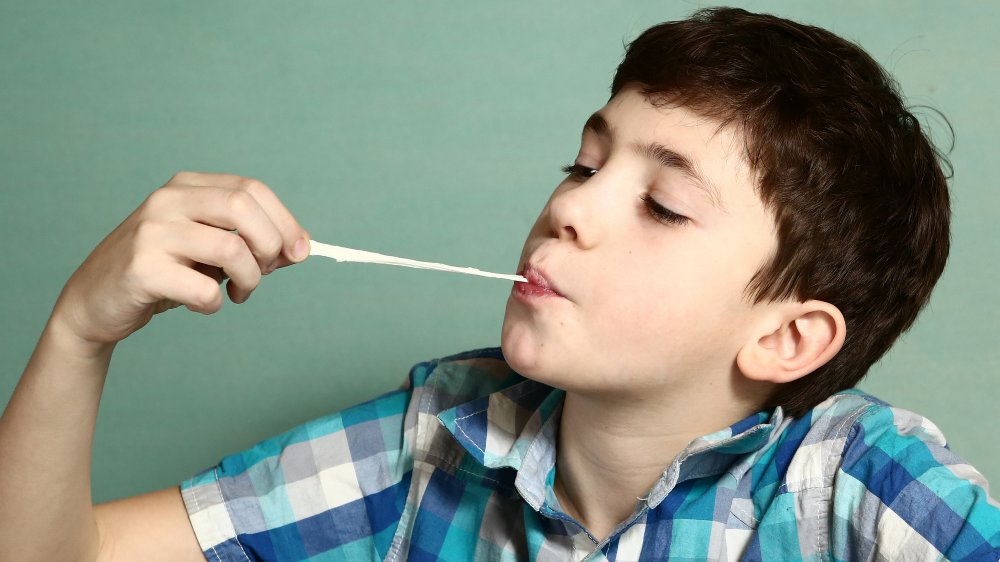Gross Things Your Child Does Without You Knowing
Children say the darnedest things and do the grossest things. Yes, there's a good chance your child is not at all ashamed to pick her nose, eat her boogers, or lick the floor. Chalk it up to age and immaturity, but there is something almost admirable about the way kids take glory in their epic grossness. They feel no shame in letting out a loud, stinky fart and have zero regrets about plucking a fallen cookie from under the couch and eating it (like you haven't thought about doing that once or twice).
While you may have caught your kiddo sticking his hands down his pants (who knows, maybe he even publicly proclaimed his "discovery" to a room full of your friends), there are plenty of other fairly foul things your child does, all the while unbeknownst to you — and maybe it is better that way. Or maybe not. Curious to know what weird and nasty things your kid is openly doing behind your back? Here are the gross things your child does without you knowing.
This is what your child does with all those boogers
That cute little nugget of yours loves to go digging for gold — and that pint-size pointer could just about disappear inside a seemingly endless nostril (the real goodies are way up there, after all). Yes, kids like to pick their noses. This often becomes an early habit, as a young child may have a hard time mastering the skill of blowing his nose. And while the finger-fishing is indeed icky, what's even more gag-inducing is the idea that a lot of kiddos like to inspect and even eat their catches of the day.
Snacking on boogers is gross, but it's not necessarily unhealthy. Scott Napper, a biochemistry professor at the University of Saskatchewa, informed parents that this seemingly disgusting habit could even have immune-building potential. In an interview with CTV News, he explained that snot "traps germs and stops them from getting into our body," but eating that mucous "could help train our immune system by exposing it to the germs."
Still, parents might want to try to dissuade perpetual pickers as it can cause painful sores, per Healthline. The site also notes that you should encourage frequent handwashing, as nose-picking and booger-eating can spread bacteria and illness-causing viruses.
Your child pees in the pool
Those "Welcome to our OOL" signs are meant to amuse (and shame) children. Because young kids — and some older ones — have a nasty habit of peeing in the pool. Heck, even adults do it — one in five surveyed Americans admit to urinating in the pool, as noted by a survey by the Water Quality and Health Council (via Time). Sometimes it's accidental; often, it's not. It feels warm, for one, and peeling off a wet swimsuit to go to the bathroom may seem like a whole lot of unnecessary work to a kid.
Good thing there's chlorine in the water, right? Well, sort of. According to the Centers for Disease Control and Prevention, the chlorine in a pool binds to "body waste" like urine to create chloramines. These chemicals are harsh, and can inflame skin, sting eyes, and aggravate the respiratory tract when they "off gas from the water and into the air above." This reaction is even more potent in indoor pools and "can cause negative health effects in swimmers and spectators," per the CDC.
That said, you may want to rethink your next visit to the community kiddie pool — or at least watch out for suspicious warm spots.
Your child uses a sleeve as an all-purpose cleaner
Kids favor convenience over manners. Why go out of their way for a tissue or a napkin when they have two perfectly clean sleeves waiting to be mucked up? Yes, snot and ketchup and spit and tears can easily be wiped away by a long-sleeve tee. As they're eliminating paper towel waste, let's just say they're doing their part to help the planet.
If you have ever removed your child's arm from a crusty-sleeved shirt at the end of a winter day, you know what we are talking about. It is fairly nauseating, but now there is an arguably less gross (maybe?) solution to this snot-coated problem: the Sneeve.
As reported by HuffPost, Stan Bratskeir took inspiration from his "sniffling grandson" and created a product to catch elbow coughs and sneezes. Parents can have their kids wear these antimicrobial fabric patches on their arm crook in an attempt to avoid letting them yuck up their actual clothes.
Your child's hands know no bounds
Kids touch themselves. Down there. A lot. It's natural and it's normal, but it can produce some uncomfortably awkward situations — like when they feel the need to announce to a room full of strangers that they like the way it feels. (It happens more often than you'd think.) Perhaps adults could all take a cue from our body-proud kiddos. They're not ashamed to explore their nether regions and proclaim their self-love to the world.
So what's a parent to do? "When your child pulls out his penis and jokes about it, don't scold him. ... It's crucial not to make your child feel ashamed," author and clinical psychologist Dr. Lawrence J. Cohen told Parents. And as for the constant touching? He suggests that you "empathize," while reiterating the importance of maintaining privacy.
Furthermore, human-sexuality educator Deborah M. Roffman explained to the magazine that kids learn about their bodies through touch and talk. A child's "experiments may look like play to you, but they're actually serious study." That innocent-ish game of doctor your child plays with a friend of the opposite sex is one way a kid may educate herself to grasp basic anatomical differences.
Your child will try to taste everything and anything
Little toys, dirty socks, rocks, cat food — at some point or another your child will try to put one or more of these less than hygienic items in his mouth.
Sharon Fernandes, a mom of five, told Today's Parent that her youngest son's oral fixation manifests in many ways: "He will suck on markers, caps off, and he even likes to color his teeth," said Fernandes. "I know he can be a daredevil and he's super curious, but I worry that he's reckless. At some point, it can't be a normal thing."
But Meghan Prouse, a pediatric occupational therapist, explained to the site that this seemingly compulsory need is completely normal and a behavior that usually tapers off after a kid turns three. "Children might chew or suck on things to calm their bodies when they are overstimulated or overwhelmed." In the meantime, try to hide choking hazards, and keep the number for Poison Control handy — just in case.
Your child paints with poop
Potty-training is a major milestone, but it's not without its own challenges. One unexpected consequence of those little potties? Your child has greater access to their own bowl full of poop. For some curious creatures, this is too tempting to resist and — just like that — an excrement artist is born. BTW, if your baby is still in diapers, it doesn't mean you're immune to this potential problem; some littles with adept fingers will learn to unfasten the tape on their diaper and use it as a palette of sorts.
Yes, painting with poop is a thing. A child might smear it on the walls, on the floors, or even on their own bodies. As noted by Scary Mommy, this can be a signal of larger issues, but in many instances, this behavior is a result of boredom and the need for sensory stimulation. As suggested by the article, you can try giving your toddler slime, playdough, or other textural concoctions (that aren't feces) to help satisfy their sense of curiosity. Of course, positive reenforcement is always productive. Restrictive clothing may also impede the sneaky Poopcasso who takes it upon himself to get undressed and unhinged.
Your child will eat snacks found between the couch cushions
Kids have no qualms eating crackers off the floor, brownie crumbs found lodged in between couch cushions, or cereal from the mysterious depths of a mini van. In fact, sometimes children will purposely store a snack for later — which, subjectively, could be ten minutes or ten days from now.
Some parents might be horrified by this truth, but others learn to go with the flow. In a HuffPost article, one mom shared her relaxed attitude about this subject: "When [my daughter] drops a snack on the ground outside and picks it up and eats it anyway, I shrug it off and don't think twice."
But should you at least abide by the age-old five-second rule? In a WebMD article, Ruth Frechman, spokesperson for the American Dietic Association, said you should "at least, wash it first. Bacteria are all over the place, and 10 types, including E. coli, cause food-borne illnesses, such as fever, diarrhea, and flu-like symptoms." Furthermore, health inspector Robert Romaine told the health site that "if the food is dry, and there's no stickiness to it, it's less likely that bacteria will stick to it." Still, do you really want to use that as guidance the next time your toddler tries to shove a floor fry into your mouth?
Your child skips out on handwashing
Kids are prone to FOMO. The last thing they want to do is spend extra time in the bathroom when they could be playing and socializing and enjoying themselves. So while they may run to the potty for a quick pee-pee or emergency poop, they will often skip that whole handwashing routine. A three-year-old has no patience for soap.
Pediatrician Kelly Fradin told The Week that "by age 4, many children seem to master the sequence of events involved in hand washing: turn the water on, soap the hands, scrub, rinse, and dry. But it's rare that they have the self-discipline to do so reliably and completely." In other words, a little bit of parental monitoring may be required. NYC pediatrician Palmo Pasquariello recommended a hack to the site: "Use something that washes off easily — a washable marker, for instance — and put it on their hands. By the time it is washed off completely, you can be sure their hands are clean."
Your child knows the taste of earwax
How do we know what earwax tastes like? It's a curious question — and the likely answer: At some point in our childhoods, we probably tasted it. So don't be surprised if your little one randomly tells you one day that their earwax tastes gross. Because, well, it does.
Otolaryngologist Seth Schwarz told Insider that earwax is acidic — which might be why some people, willing to admit they've accidentally or purposely tasted it, may say it is offensive on the tongue. While it might not be palatable, the acidic factor of earwax is beneficial as it helps to ward off infection.
Furthermore, earwax itself is good for you. It accumulates from a mixture of bodily secretions and keeps your ear canal lubricated and clean, per Verywell Health. While you might be tempted to remove excess buildup from your child's inner ear with a Q-tip (so, you know, they won't be tempted to eat it), you should let it loosen up naturally. The ear canal is extremely sensitive and delicate, and you could end up doing damage or pushing wax further inside the ear, according to KidsHealth.
Your child puts things up their nose
A toy, a marble, food — kids like to shove all sorts of things up their noses. But why? Pediatrician Tricia Feener explained to Today's Parent, saying, "Children learn by interacting with the environment and using all of their senses. Babies notoriously put everything in their mouths, and, as they get older, they will put things in other orifices, including the nose."
It can be alarming for a parent trying to figure out how to finagle a soybean out of a tiny nostril. So what should you do? Feener told the site that you should try to encourage your child to breathe through their mouth while you evaluate the situation. If your kiddo is able to gently blow their nose, have them give it a go. Even more important to note: You should only use tweezers when you can see the lodged item, otherwise you risk pushing it further up the nose. If the object is in too deep, you'll want to schedule a visit with your child's pediatrician.
Your child eats play dough
Play dough has a satisfyingly gummy texture and is often pleasantly scented, so it should come as no surprise that many toddlers and young kids want to put it in their mouths. Yes, kids tend to put anything and everything they can into their traps, and play dough most likely meets a kid's non-discriminating standards.
But is it safe? While you may be horrified to see your little one chowing down on a glob of play dough, Missouri Poison Center advises parents not to panic. "Take the play dough away from them, wipe out the mouth with a soft, wet cloth and give them some water to drink," according to the center. As noted by Verywell Health, most store-bought types of play dough are non-toxic and relatively safe, though you should always read the label to be sure.
If you're worried, you can always make your own play dough with edible ingredients. The site points out, though, that while the common DIY concoction might be considered safe, the salt and baking soda content will likely make it taste pretty gross — which could work in your favor if you're trying to dissuade a toddler's non-food diet.
Your child gets too close to public water fountain spouts
The thought of a communal drinking water fountain at the park or in a public school might make you cringe as you know so many mouths come in close proximity to that spout. And seeing your own little one puts his or her mouth directly over on the spout is probably enough to send shivers down your spine.
As noted by The Guardian, the grossest, most germ-ridden parts of a public water fountain are actually "on the knobs and buttons of fountains." The water spout, on the other hand, is perpetually getting rinsed off. As such, it is less likely to transmit bacteria — "even if children put their mouths on it momentarily," noted The New York Times.
But if you want to avoid this issue altogether, consider sending your child to school, sports, and activities with a cold thermos full of refreshing spring water.
Your child is not the most responsible with chewing gum
There are few things quite so gross as accidentally sticking your hand in old gum adhered under a table or stepping in a melty patch of Bubbalicious on the street. Of course, we can all remember being the culprit of these gummy messes back when we were inconsiderate tweens. These days, though, kids still play with their gum and then discard it wherever seems most convenient.
This is among the many reasons some teachers do not like young students to chew gum in their classrooms — that and the incessantly distracting popping noise. Jason Riddell, an elementary school teacher in Ontario, explained to The Globe and Mail why he ended his pro-gum policy: "The day that I found it ground up into the carpet was probably the last straw."
As for younger kids, they don't discard their gum at all — many just swallow it. Contrary to popular myth, swallowed gum will generally pass through a child's digestive tract in about 40 hours, per Healthline. But if they swallow large quantities, it could back up and block the intestines. If you do decide to allow your child to have gum, it's not a bad idea to teach some basic chewing etiquette.
